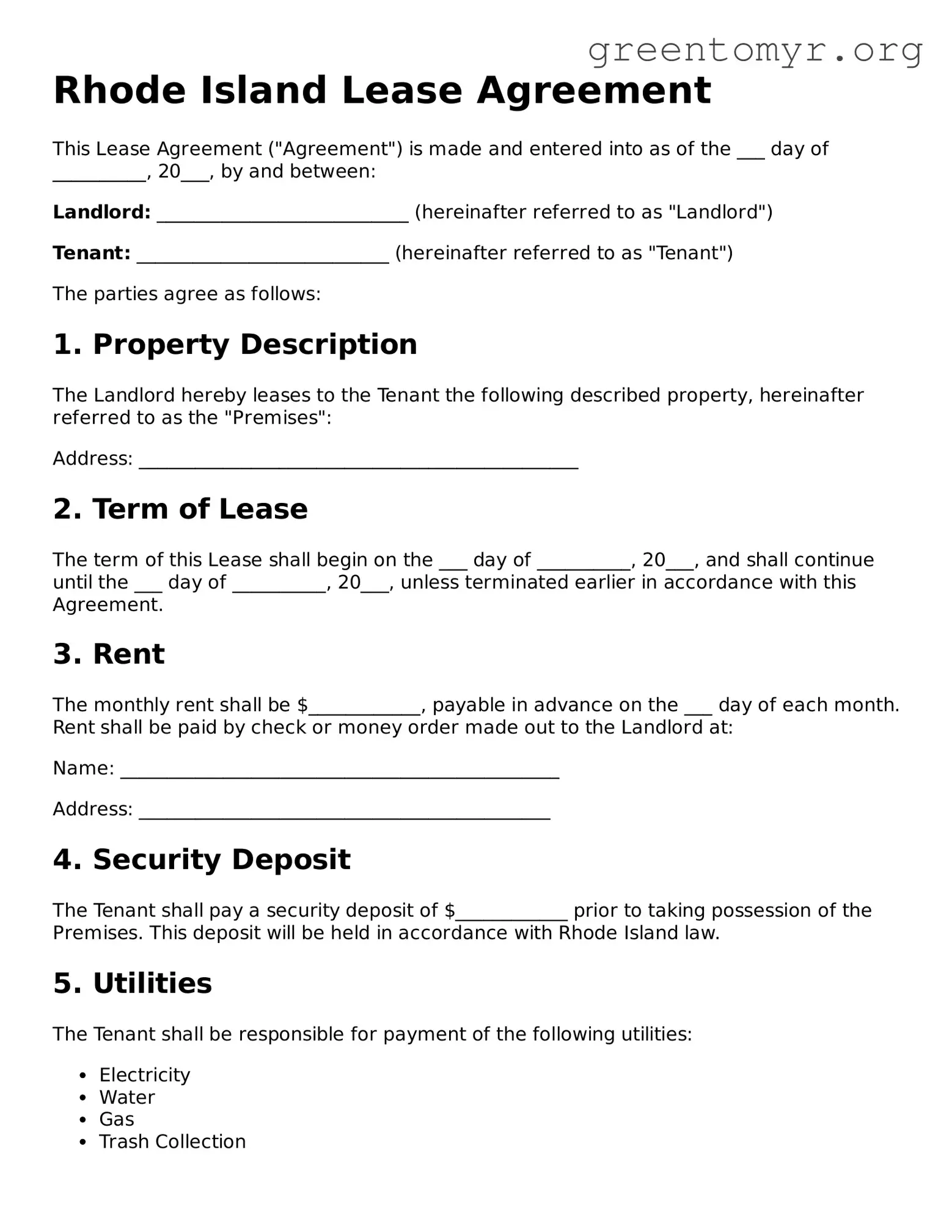Rhode Island Lease Agreement
This Lease Agreement ("Agreement") is made and entered into as of the ___ day of __________, 20___, by and between:
Landlord: ___________________________ (hereinafter referred to as "Landlord")
Tenant: ___________________________ (hereinafter referred to as "Tenant")
The parties agree as follows:
1. Property Description
The Landlord hereby leases to the Tenant the following described property, hereinafter referred to as the "Premises":
Address: _______________________________________________
2. Term of Lease
The term of this Lease shall begin on the ___ day of __________, 20___, and shall continue until the ___ day of __________, 20___, unless terminated earlier in accordance with this Agreement.
3. Rent
The monthly rent shall be $____________, payable in advance on the ___ day of each month. Rent shall be paid by check or money order made out to the Landlord at:
Name: _______________________________________________
Address: ____________________________________________
4. Security Deposit
The Tenant shall pay a security deposit of $____________ prior to taking possession of the Premises. This deposit will be held in accordance with Rhode Island law.
5. Utilities
The Tenant shall be responsible for payment of the following utilities:
- Electricity
- Water
- Gas
- Trash Collection
6. Use of Premises
The Premises shall be used solely for residential purposes. The Tenant shall not engage in any illegal or disruptive activities.
7. Maintenance and Repairs
The Tenant agrees to keep the Premises clean and in good condition. Any needed repairs must be reported to the Landlord immediately.
8. Termination
Either party may terminate this Lease by providing written notice of at least 30 days prior to the end of the Lease term.
9. Governing Law
This Agreement shall be governed by the laws of the State of Rhode Island.
Signatures
IN WITNESS WHEREOF, the parties have executed this Lease Agreement as of the date first above written.
Landlord Signature: ___________________________ Date: ____________
Tenant Signature: ____________________________ Date: ____________
